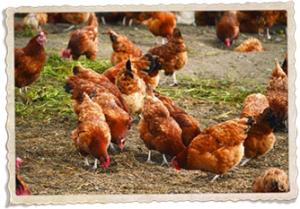When it comes to raising chickens, there is a lot of work that goes into the endeavor. You have to keep them happy, healthy, and protected. As far as threats come, there can be a lot to watch out for, and that includes environmental pressures, illnesses, and threats that come in the form of predators looking to hurt your chickens.
One of the most famous of these predators of chickens is the clever and relentless coyote.
Other Chicken Predators
About Coyotes
Coyotes are part of the Canidae family which, as you might know, makes them a relative of wolves, foxes, and domesticated dogs. They might start out cute, but they grow up fast with the typical coyote coming in at between 20 and 30 pounds and often reaching up to over two feet tall and over four feet long. They are scavengers by nature, and they will usually eat anything they can find, especially live prey such as chickens.
Although coyotes can be found in many different natural environments, they are usually found in woodland areas and will often build their dens in dry places including holes in vacant lots, storm drains, and in unoccupied parks. In many cases, coyotes hunt alone but depending on their population density, they are also known to hunt in pairs or even packs.
Protecting Your Chickens
If a coyote finds your chickens, it is imperative that you handle the problem quickly because once they find their prey, coyotes can be savage with their attacks. If you don’t have proper protections in place, one coyote could quickly turn into several. They attack by gnawing into the chicken’s jugular area before dragging its victim away to eat elsewhere.
Once a pack of coyotes knows where your chickens reside, the attacks can be unending. Luckily, there are several precautions that you can take to ensure the safety of your flock.
Use Proper Fencing
Most important is surrounding your chickens with an imposing and sturdy fence. Proper fences should be over six feet high and be made out of a 19-gauge metal hardware cloth. When confronted with a fence, coyotes will often try to dig underneath to reach their prey, so be sure that your fence is buried two feet into the ground.
Guard Dogs
If your fences aren’t doing the trick, there are other more involved methods you can try including getting a trained livestock guard dog to protect the area or installing motion sensors or electric fences around your chickens so they can stay safe and secure.
At Chickens for Backyards, we offer a lovely selection of 78 beautiful breeds that you can mix and match to create the backyard flock that you have always envisioned. Just remember to keep them safe! Contact us to order today.


